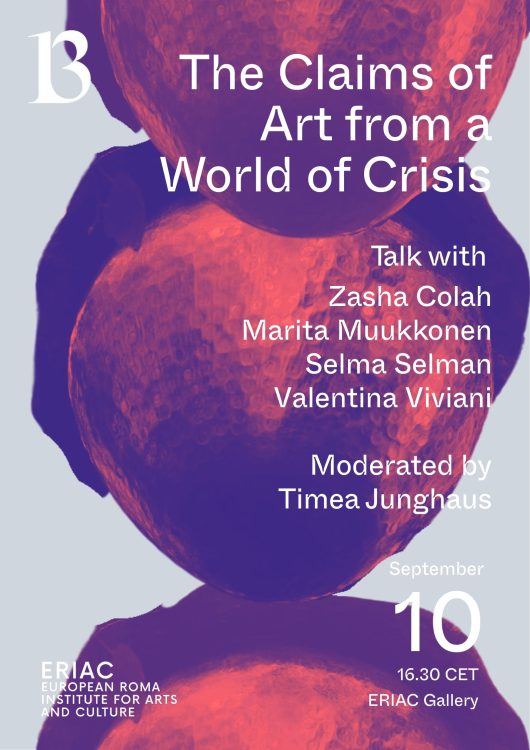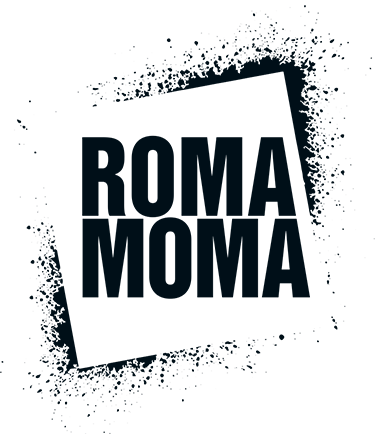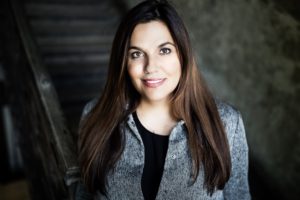The Claims of Art from a World of Crisis

Image: Lali Gabor, Birdhouses, copper, mixed media, 2025
If art exists, most explicitly, in moments of crisis and catastrophe—as is attested by artists of the 13th Berlin Biennale and its Sister Organizations—what are its languages and preoccupations? What does it leave to us as viewers, spectators, audience, receivers, and is it what we expect, or can even understand fully in the present?
In an era where crisis has become the status quo, what is the role of art when survival itself is at stake? This conversation invites thinkers, artists, and curators to explore how art functions as a site of resistance, a space for critical imagination, and as cultural evidence—the artistic action, its orality, and forms of transmission, recognized as a fundamental part of history and world making.
As financial markets trade in cultural capital and institutions buckle under the weight of political instrumentalization, we ask: Does art still possess the radical potential to repair, to challenge, to propose new futures? Which are the artistic claims of our times?
The panel will draw from historical moments when art redefined itself in response to catastrophe—from avant-garde movements born from the rubble of war to contemporary interventions emerging from zones of displacement. This conversation will not seek definitive answers, but rather provoke a rethinking of the possibilities of art in the present moment, in a time when uncertainty is our only certainty.
ERIAC is a sister-organization of the 13th Berlin Biennale and this talk also marks the closing of the exhibition HOLDING GROUND: Crafting New Paths in a Changing World, curated by Timea Junghaus and presented in collaboration with the 13th Berlin Biennale for Contemporary Art.
The Claims of Art from a World of Crisis
Talk with Zasha Colah, Marita Muukkonen, Selma Selman, Valentina Viviani
Moderated by Timea Junghaus
Wednesday, September 10, 16:30
ERIAC Gallery Space (Berlin – 10117 Mitte, Reinhardtstraße 41-43)
Zasha Colah´s exhibitions explore artistic imagination, humour and oral history, often under conditions of sustained oppression. She is artistic director of Ar/Ge Kunst (with Francesca Verga; Bozen-Bolzano; 2023–). Lecturer in Curatorial Studies at Nuova Accademia di Belle Arti (Milan, 2018–), and part of the editorial board of GeoArchivi (director: Marco Scotini/NABA, published by Meltemi, Milan, 2021–). She was Member of Archive (Berlin/Dakar/Milan; 2020–23)—a decentralized community of practice; and co-founded Clark House Initiative (Mumbai, 2010–22)—a collaborative of artists and curators concerned with ideas of freedom. Her doctorate addressed illegality and meta-exhibition practices in Indo-Myanmar since the 1980s (Sapienza–Università di Roma, 2020). She co-curated the 3rd Pune Biennale with Luca Cerizza (2017), and was part of the curatorial team led by Marco Scotini of the 2nd Yinchuan Biennale (2018). She is curator of the 13th Berlin Biennale.
Marita Muukkonen is a curator and co-founder and director of Perpetuum Mobile (PM), the non-profit which runs the international NGOs Artists at Risk (AR) and Ecologists at Risk (ER). Artists at Risk (AR) has won awards such as the State Prize of Finland and the European Citizen’s Prize of the European Parliament.
Marita curates internationally, and serves on several juries, and has served as curator at FRAME – Contemporary Art Finland; editor of FRAMEWORK – The Finnish Art Review; Chairperson of the Helsinki International Artists-in-Residence Programme (HIAP) and held key functions at the Nordic Institute for Contemporary Art (NIFCA). A central thread in her work is a committed collaboration with Romani artists and communities, notably through the Outside Insiders Project at Moderna Museet Malmö (2014–2015) or in the frame of Artists at Risk UNESCO Pavilion in Venice (2024).
Selma Selman is a visual and performance artist from Bosnia and Herzegovina of Romani origin. Her multidisciplinary practice includes performance, video, painting, and installation, often rooted in autobiographical narratives that confront social injustice, gender-based violence, and systemic discrimination. In her ongoing performance Motherboards (2023–ongoing) Selman, alongside her family members, dismantles electronic waste to extract precious metals—a process that deconstructs racialized and reductive narratives while offering tangible insights into power and sustainability. Her works have been exhibited at documenta fifteen, the Venice Biennale (FutuRoma Pavilion), Autostrada Biennale, Gropius Bau, Schirn Kunsthalle, Istanbul Biennial. Selman is also the founder of the educational initiative Get the Heck to School, which supports Roma girls facing poverty and marginalisation.
Valentina Viviani is an artist, and occasional curator, part of Poly Marchantia, a feminist artist collective focused on ways of enacting plant thinking and entering in conversation with spaces understood as ecosystems. As an artist she has made, The Missing Forest, a performative-walk (Ar/Ge Kunst, Bozen-Bolzano, 2023), Quali voci, quali corpi, quali storie? with Poly Marchantia collective in the SITU residency program (Militello, Val di Catania, Italy, 2021) and Atlas, fragmentos para la producción del Paisaje (Córdoba, Argentina, 2017), among others. She is Assistant Curator of the 13th Berlin Biennale for Contemporary Art. Prior to this, she collaborated with Zasha Colah to curate The Scorched Earthly (221A Vancouver, 2021–22), and Extraneous (EXILE gallery, for Curated by festival, Vienna, 2022). She taught and coordinated the MA Mater Matuta, a program of curatorial practice and the philosophy of the Mediterranean in ABADIR Academy (Sicily, 2023–24). She lives in Turin (2020–).
Timea Junghaus is an art historian, curator, and a leading voice of the Roma cultural and political movement. As Executive Director of the European Roma Institute for Arts and Culture (ERIAC) in Berlin, she has forged an unprecedented institutional platform for Roma creative expression. Her research and curatorial practice interrogate modern and contemporary art through critical theory, with particular attention to cultural difference, coloniality, and minority representation. Junghaus’s curatorial achievements include the First Roma Pavilion at the 52nd Venice Biennale (2007); the visual art section of RomArchive (2017); the prefigurative institution RomaMoMA (2005-present); the Roma contributions at Manifesta 14 (2022) and documenta fifteen (2022); and the Milan Triennale (2022). Her work enacts a radical, feminist, decolonial delinking from hegemonic art historical canons, positioning Roma contemporary art as both a transformative cultural field and a force that redefines the ethics of representation in the global art world.






Leave a Reply